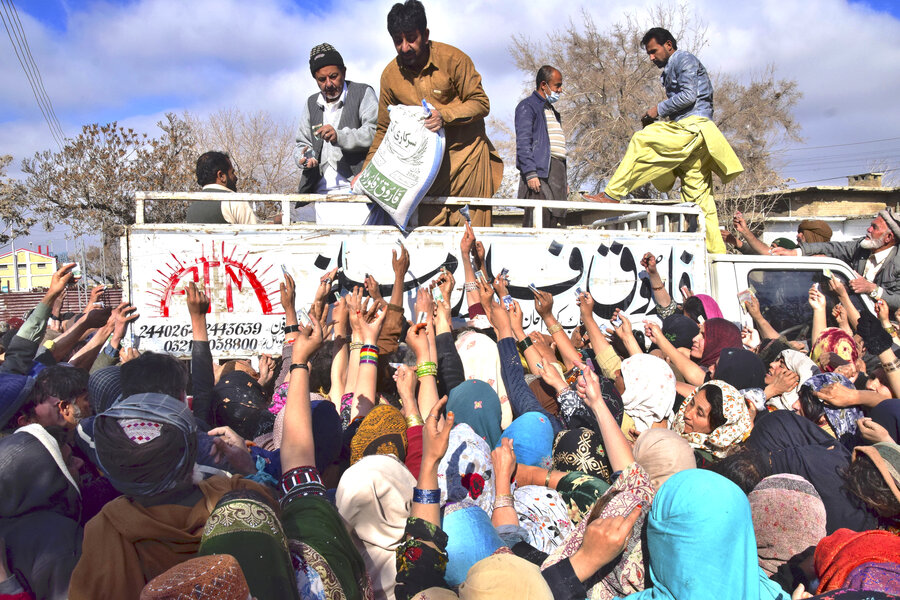How truth about debt sets a nation free
Loading...
Honesty will be a prime topic at the Group of Seven summit this weekend in Japan. For leaders of these wealthy nations, there’s still too much secrecy around an estimated $326 billion in debt held by more than 70 low-income nations. A default by any one of them – or worse, a country caught lying about its statistics – could spark a global financial crisis.
“It is essential to improve debt data transparency and accuracy to prevent future debt crises,” says Japanese Finance Minister Suzuki Shunichi.
Yet the fact that the G-7 is even pressing more nations to be open about their debt details is a testament to the honesty already achieved in official data. Since the 1994-95 Mexican financial crisis, both the World Bank and International Monetary Fund have raised global standards by helping dozens of countries adopt advanced reporting systems. “We are working hard to make statistics more comprehensive and available,” says David Malpass, the departing World Bank president. In some countries, criticism of official data is still a crime.
Data transparency is a “public good” and “a core principle of good governance,” says the IMF. And not just to avoid a financial collapse or to better involve citizens in decision making. Without accuracy in climate-action data, for example, the world may not make as much progress against global warming. “Sound public finances enable us to invest even more in the fight against climate change,” says European Commission President Ursula von der Leyen.
A leading example of how data dishonesty can ricochet around the globe is Greece. In 2009-10, a new government in Athens admitted the country had long lied about its national deficit. The sudden fear of a debt default triggered a severe financial crisis in Europe that almost ended the continent’s experiment with a single currency, the euro.
One of those who exposed the truth about Greece’s finances was a new member of the country’s reformed statistics agency, Andreas Georgiou. “As a statistician, you hold up a mirror to society: look, this is you,” he told the German news outlet Süddeutsche Zeitung in March. “And it is a constant of history that the rulers would like to keep this mirror in their own hands.”
Today, after an international bailout program for Greece, severe fiscal austerity for its people, and better reporting of official statistics, the country has experienced one of the most rapid rates of debt reduction in the world. The government budget is expected to show a surplus this year. And Greece’s economy could be upgraded soon to “investment grade” by international credit agencies.
All of Greece’s reforms during the country’s 10-year debt crisis “have all contributed to the maturity of the Greek society, enabling it to understand the new international economic environment,” stated Greece’s central bank in April.
Greece’s comeback from debt deceit will be in the background at the G-7 in Hiroshima. Financial statistics can be as dry as dust. Yet when officials are open and honest about such data, it can lubricate the world economy.





